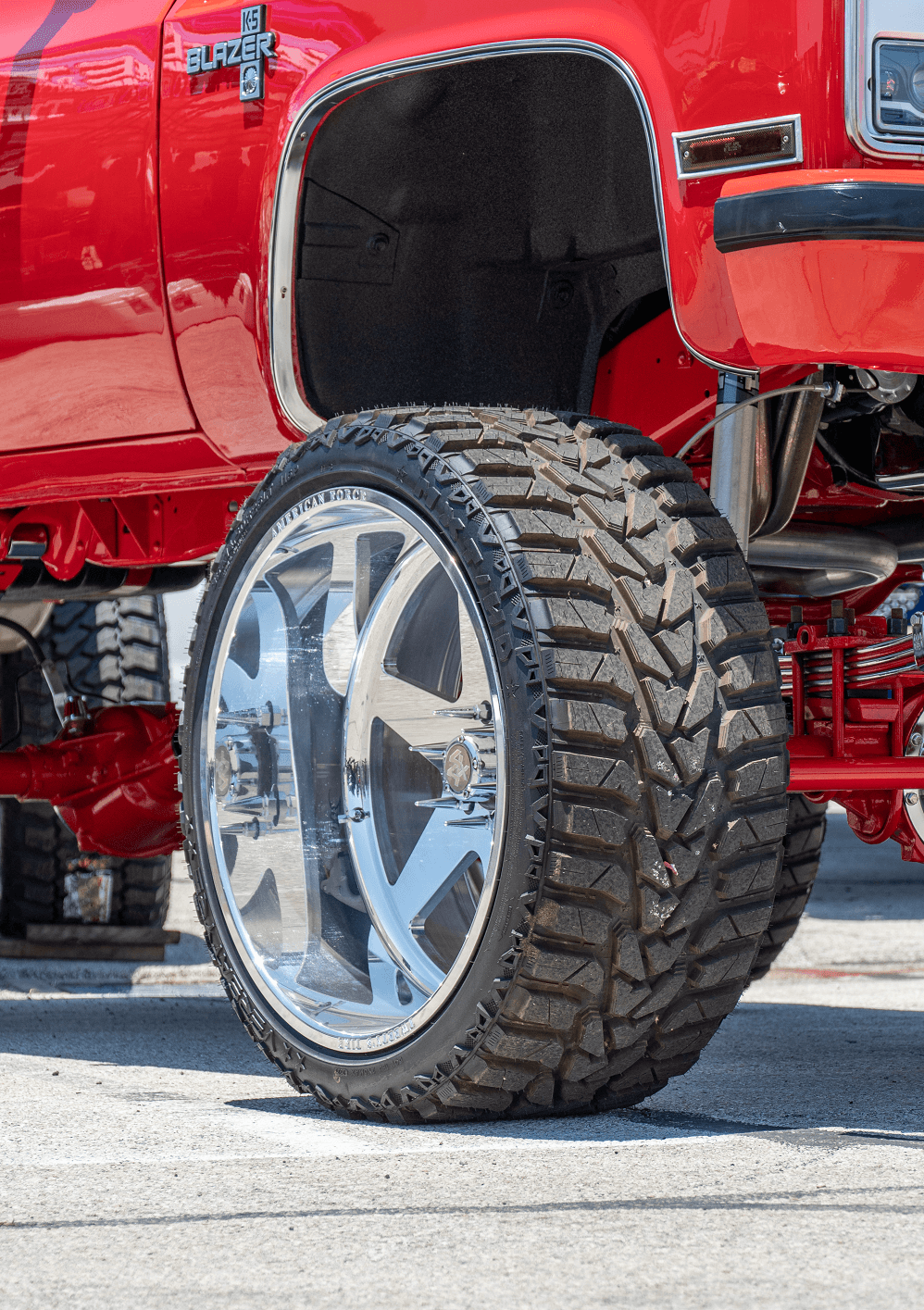
Choosing the correct tires for your car is a critical choice. The Best All-Season Light Truck Tires or SUV tires you pick may have a direct influence on traction, convenience, ride quality, tread life, and endurance. Here’s a fast guide to determining which truck tires are best for your off- and on-road demands.
The average tire is expected to last between three and five years. However, when driving a truck, vigorous driving might cause it to wear out significantly faster.
Choosing a truck tire with efficient coping characteristics and features for your truck and driving requirements is essential. Here are the six most important things to consider when purchasing All-Season Tires.
It is just as vital to know when to change your tires as it is to know what to replace them with. To check that they are safe, conduct a short test with a coin. Insert a coin into the tread, and if the tread only touches the top of Lincoln’s hair you should immediately replace the tire. If it touches the top of its forehead where it meets his hair, you should start looking for new tires.
Driving on tires with no tread means you will lose traction. Driving without tread is unlawful in most states and may result in a license suspension or penalties. Check and repair your spare tire as well.
Tires appear to perform the same purpose. Nonetheless, little alterations might have a significant influence.
If you reside in a snowy environment, you should choose softer tires that provide more traction. These might be winter tires that are later replaced with more robust summer tires. However, in hot areas, soft tires like these would not survive long.
Most tires are all-season, which means they may be used in both hot and cold conditions. However, if your location is prone to weather extremes, consider your purchase carefully.
When purchasing All-Season Car Tires, check the code stamped on the tire’s sidewall. It is made up of letters and numbers and will tell you the kind, size, and effectiveness of the tire you are purchasing.
The width is indicated by the first three numbers. It’s a measure in millimeters from sidewalls to sidewalls.
Following this will be a forward slash and then another two-digit number. It’s the aspect ratio, and the larger it is, the bigger the sidewalls will be. It offers a percentage amount concerning the width of the tire.
The letter R is then followed by two numerals. This is an abbreviation for radial, and the number following it represents the wheel diameter. An R18, for example, suits a car with an 18-inch wheel.
Truck tires, like any other commodity, may be purchased at a variety of rates. Once you’ve determined what you require, go shopping. You may check out dealerships and independent retailers to discover who has the greatest deals.
Don’t be hesitant to inquire about price matching. Most garages would gladly undertake this task for you, specifically if you are buying a set of tires at once. If you are sure about what you’re looking for, you might choose to order it online and have it delivered to your home.
Changing to a passenger tire saves money. However, it is possible that you will not save as much as you thought you would.
Passenger tire load ratings only apply if they are placed on a car or truck. A vehicle has a distinct center of gravity, putting tension in different places. To remedy this, drop the applied load by around 9%.
This makes it necessary to purchase a larger passenger tire. If you have to switch to a larger tire to do this, you will pay more money, which is generally equivalent to purchasing suitable truck or All-Season SUV Tires.
Adding them is only suggested if the truck is primarily used as a passenger car or truck. These tires will give a more comfortable and quiet ride. If you don’t, it might not be worth the hassle.
Even some of the most realistic people will purchase a truck purely on its appearance. It looks fantastic, and the larger the all-terrain tire and wheel is, the better it will look on the truck. However, this might result in unneeded expenses.
Larger tires with huge tread blocks frequently result in increased noise and poor road handling. You will not need them unless you’re going off-road.
However, the online world has made it more convenient than ever to examine the quality of tires while purchasing them. A fast Google search will reveal what experts and other customers are saying. Many will even give thorough breakdowns to help you select the best one for your unique needs.
Unfortunately, when it comes to tires, you often get what you pay for, so cheaper choices could be a waste of cash. As a result, always set a budget and work hard to stick to it, as tires may quickly become expensive.
Always factor in a warranty. This will give you an idea of how long the tires will last.
You now understand what to search for when purchasing a truck tire. You may start looking for an All-Season Tire with strong tread capable of managing an off-road experience or a comfy ride for your everyday commute. Start by speaking with vendors in your region. They could have special deals or inexpensive pricing on certain outstanding products.